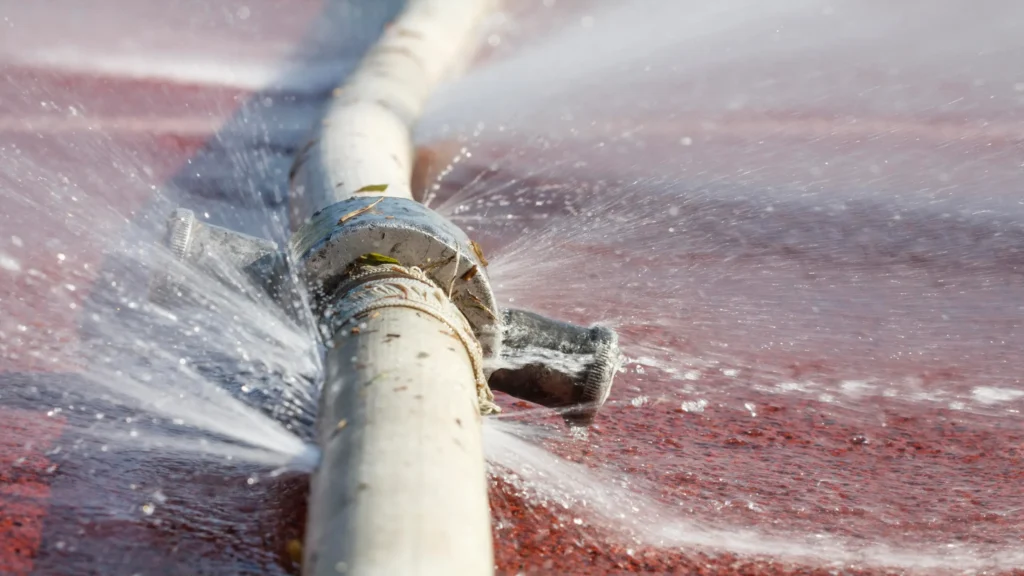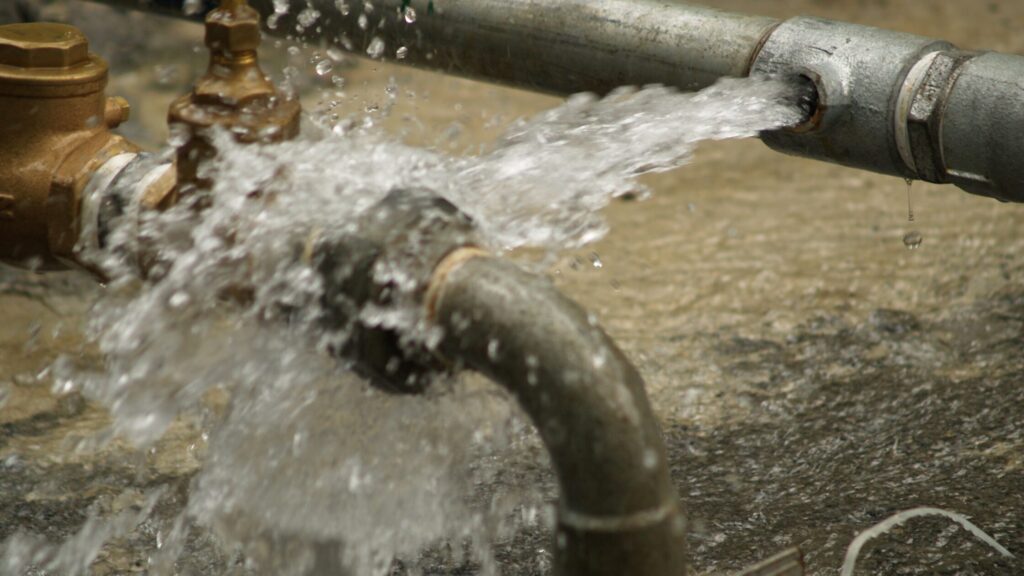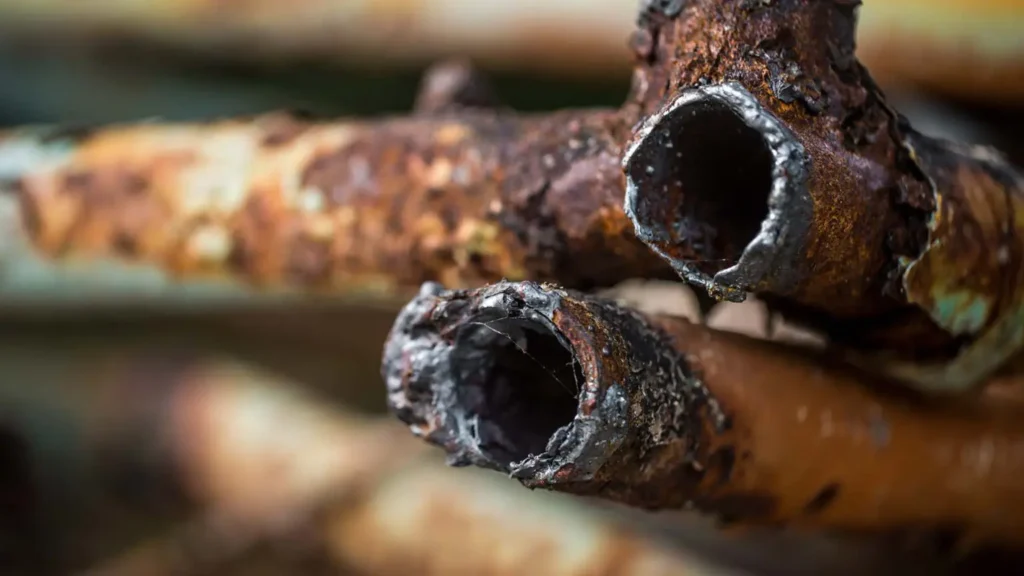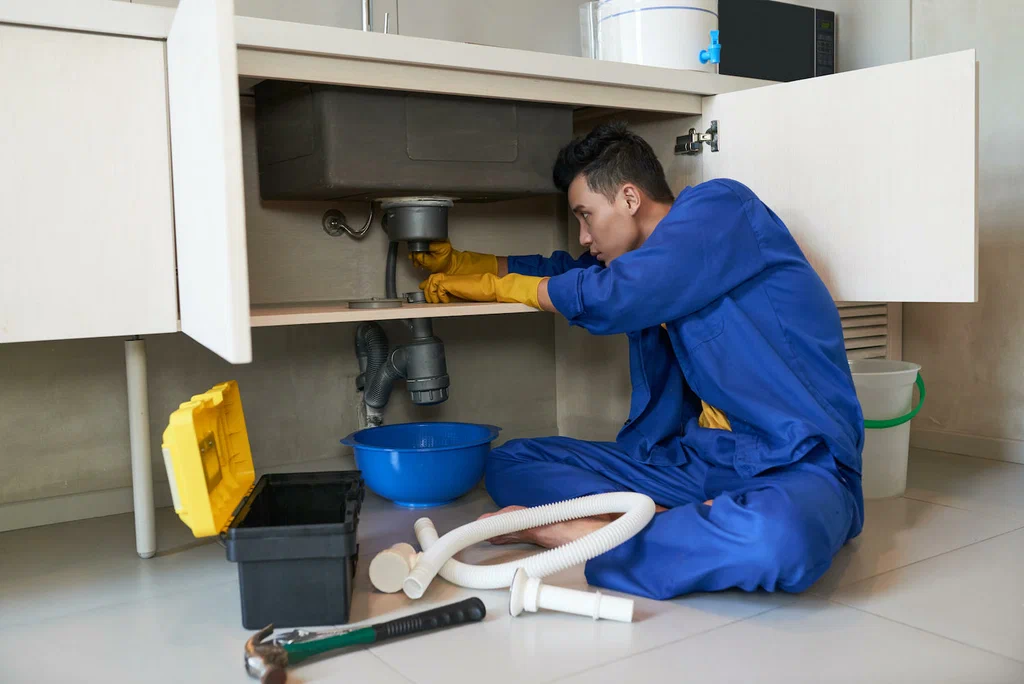When you think about plumbing, most homeowners picture pipes running neatly behind the walls and under the floors, carrying water reliably for decades. While pipes themselves are often sturdy, the places where those pipes connect—called pipe joints—are by far the most vulnerable parts of your system. Over time, these joints can loosen, corrode, or shift, leading to pipe joint compound leaks that can cause hidden water damage, mold growth, and even structural issues if left untreated.
At Leak Experts USA, we’ve seen thousands of cases where a small drip at a joint turned into a costly repair. Understanding why joints fail, how to spot the warning signs, and what you can do about them is crucial for protecting your home and keeping your plumbing running smoothly. In this comprehensive guide, we’ll explore the science behind pipe joint leaks, the common causes of plumbing joint failure, and the best solutions to stop problems before they start.
📞 If you suspect a leak right now, call (702) 745-5571 to schedule an inspection with the most trusted plumbing company in Las Vegas.
Table of Contents
- Why Pipe Joints Are the Weakest Link
- Common Causes of Pipe Joint Leaks
- Types of Pipe Joints and Their Vulnerabilities
- Signs You Have a Leak at Pipe Fittings
- Risks of Ignoring Leaking Pipe Connectors
- Professional vs. DIY Solutions for Pipe Joint Leaks
- Preventing Plumbing Joint Failure in Your Home
- Why Water Pipe Joints Fail More Often in Older Homes
- How Leak Detection Protects Las Vegas Homeowners
- The Role of Water Pressure in Pipe Joint Leaks
- Seasonal and Environmental Stress on Water Pipe Joints
- Why Professional Installation Matters for Long-Term Reliability
- Long-Term Solutions: Home Repiping in Las Vegas
- FAQs About Pipe Joint Leaks
- Why Choose Leak Experts USA for Lasting Plumbing Solutions
Why Pipe Joints Are the Weakest Link
Every plumbing system relies on connections to route water from one place to another. While pipes are usually manufactured in long, durable sections, they must be joined together or connected to fixtures. These water pipe joints—whether soldered, threaded, glued, or pressed—introduce points of weakness.
Unlike the uniform strength of a pipe wall, joints depend on sealants, fittings, and pressure. Temperature fluctuations, water chemistry, and simple wear-and-tear can cause these seals to break down, leading to pipe joint leaks.
Common Causes of Pipe Joint Leaks
Not all leaks occur for the same reason. Here are the most frequent culprits:
- Corrosion – Metal fittings deteriorate over time, especially in hard water regions.
- Improper Installation – A joint that wasn’t tightened, soldered, or glued properly may leak within months.
- Water Pressure Issues – Excessive pressure stresses joints more than straight pipe sections.
- Temperature Expansion/Contraction – As pipes expand and contract, joints often bear the brunt of the movement.
- Aging Materials – Old connectors, especially galvanized steel, eventually fail.
These factors make joints the most likely place for plumbing joint failure, even when the pipes themselves are intact.



Types of Pipe Joints and Their Vulnerabilities
Understanding how different joints are made will give you a clearer picture of why they fail:
- Threaded Joints – Common in steel and brass piping. They rely on sealants like Teflon tape. Over time, threads wear down.
- Soldered Joints – Used with copper. The solder bond can weaken or crack with heat stress.
- Compression Fittings – Used under sinks. These can loosen with vibration or water hammer.
- Glue (Solvent-Welded) Joints – Common to fix PVC pipe. The adhesive can degrade over decades or if improperly applied.
- Push-Fit Connectors – Convenient but prone to failure under high pressure or improper installation.
Each type has its benefits, but all create more risk for leaking pipe connectors than continuous pipe sections.
Signs You Have a Leak at Pipe Fittings
Detecting leaks at pipe fittings early can save you thousands in repairs. Watch out for:
- Unexplained water spots on walls or ceilings
- Mold or mildew odors
- Hissing sounds near walls or under floors
- Reduced water pressure in specific to fix a leaky pipe
- Higher-than-usual water bills
Even a small drip can lead to severe damage if ignored. If you suspect a leak, call a professional immediately.
Risks of Ignoring Leaking Pipe Connectors
A single drip may not seem like a big deal, but ignoring pipe joint leaks can cause:
- Structural Damage – Water weakens drywall, flooring, and foundations.
- Mold Growth – Hidden leaks are prime breeding grounds for toxic mold.
- Increased Bills – Even a tiny leak wastes hundreds of gallons monthly.
- Sudden Failures – Small leaks often lead to full-blown bursts.
As specialists in plumbing joint failure, we’ve seen cases where a $200 repair turned into a $20,000 restoration project because the homeowner delayed action.
Professional vs. DIY Solutions for Pipe Joint Leaks
You may be tempted to tighten a fitting or patch a leak yourself. While some temporary fixes can hold, they rarely last.
- DIY Approaches: Epoxy putty, joint tape, or tightening connectors may stop a drip temporarily but don’t solve underlying issues.
- Professional Solutions: At this company we inspect the system, identify why the joint failed, and provide permanent fixes—from replacing connectors to recommending home repiping Las Vegas homeowners can rely on.
Preventing Plumbing Joint Failure in Your Home
You can’t eliminate all risks, but you can minimize them:
- Schedule annual plumbing inspections
- Monitor water pressure with a regulator
- Use high-quality connectors and fittings
- Insulate pipes to prevent expansion stress
- Upgrade aging plumbing systems before leaks occur
Preventive maintenance is always cheaper than emergency repairs.

Why Water Pipe Joints Fail More Often in Older Homes
Homes built decades ago often used galvanized steel, which corrodes easily. In these homes, water pipe joints are especially vulnerable to rust, mineral buildup, and cracking.
Older plumbing systems also experience more shifting due to soil movement, especially in desert climates. This constant stress accelerates pipe joint leaks.
How Leak Detection Protects Las Vegas Homeowners
Modern technology makes it easier than ever to find leaks at pipe fittings before they become disasters. At our company, we use:
- Acoustic leak detection to listen for water movement
- Thermal imaging to spot hidden moisture
- Pressure testing to identify weaknesses
This proactive approach gives Las Vegas homeowners peace of mind.
The Role of Water Pressure in Pipe Joint Leaks
One of the most overlooked factors in pipe joint leaks is water pressure. Homeowners often assume “the stronger the pressure, the better,” but high water pressure actually puts enormous stress on your plumbing system. While pipes can usually withstand the pressure, it’s the joints—the points where connectors, fittings, and sealants are located—that give way first.
- Ideal Range: The recommended water pressure for most residential systems is between 40–60 psi. Anything consistently above 80 psi dramatically increases the risk of plumbing joint failure.
- Signs of Excessive Pressure: Banging pipes (also called water hammer), unusually strong bursts when opening faucets, or rapid wear on appliances like dishwashers can all signal pressure issues.
- Why Joints Suffer First: Joints have more surfaces and seams than solid pipes. When high pressure pushes water through these connections, even a small imperfection in sealing material can become a leak.
Installing a pressure-reducing valve (PRV) is one of the simplest ways to protect against leaking pipe connectors. Regularly checking your water pressure can also prevent hidden damage. We often discover that homes with frequent joint leaks have chronically high pressure—and once it’s regulated, future issues are reduced dramatically.
By keeping your water pressure in check, you’re not only protecting your pipes but also extending the lifespan of your entire plumbing system. It’s one of the most cost-effective preventive measures you can take as a homeowner.
Seasonal and Environmental Stress on Water Pipe Joints
While plumbing problems may seem random, many pipe joint leaks occur due to environmental conditions and seasonal changes. This is especially relevant in desert climates like Southern Nevada, where homes face extreme heat and occasional cold snaps.
- Temperature Fluctuations: As water temperature changes, pipes expand and contract. Over time, this movement loosens fittings, leading to leaks at pipe fittings.
- Soil Movement: In certain neighborhoods, shifting soil places added stress on underground water pipe joints, increasing the chance of failure.
- Hard Water: Las Vegas is known for its mineral-heavy water supply. Hard water deposits accumulate around connectors, corroding metals and degrading seals, making leaking pipe connectors far more common.
- Seasonal Usage: Many homeowners notice leaks during the summer, when water usage spikes due to sprinklers, pools, and increased cooling demands. This higher demand means greater stress on already weakened joints.
What can you do? Regular maintenance is the key. Flushing your water heater, inspecting exposed pipes, and scheduling seasonal plumbing checks all reduce risk. Installing water softeners can also slow the buildup of scale that weakens fittings.
At this company, we help homeowners anticipate these seasonal challenges. By addressing issues before they escalate, we save families the headache of sudden leaks and costly repairs. Think of your plumbing system like your car—it performs best when it’s cared for regularly and adjusted to handle environmental conditions.
Why Professional Installation Matters for Long-Term Reliability
One of the biggest causes of pipe joint leaks isn’t aging or corrosion—it’s poor installation. A joint that wasn’t connected properly from day one is a ticking time bomb for your plumbing system. Unfortunately, we see this often when work is done by inexperienced contractors or quick DIY projects.
Here’s why professional installation makes such a difference:
- Precision: Experienced plumbers understand torque levels, correct soldering techniques, and proper sealing methods.
- Material Compatibility: Different pipes (copper, PEX, PVC) require different types of connectors. Using the wrong fitting often leads to early plumbing joint failure.
- Code Compliance: Licensed plumbers ensure all connections meet local building codes, reducing liability and future headaches.
- Fewer Connections Needed: Skilled installers plan pipe layouts to minimize the number of joints, reducing the overall risk of leaks.
While DIY repairs may seem appealing, temporary fixes often mask deeper problems. For example, over-tightening a connector may stop a leak briefly, but it can crack the fitting and cause a major issue later.
At our company, every installation is done with long-term reliability in mind. We don’t just patch leaking pipe connectors—we make sure your system is secure for decades. Whether it’s a small repair or a complete repiping project, professional craftsmanship is the foundation of a leak-free plumbing system.

Long-Term Solutions
Sometimes repairing individual leaking pipe connectors isn’t enough. If your system suffers repeated plumbing joint failures, the best solution is complete repiping.
With home repiping Las Vegas residents get:
- A modern, leak-resistant system
- Fewer joints and fittings
- Long-term reliability with PEX or copper
- Increased property value
Repiping eliminates weak points and protects your home for decades.
FAQs About Pipe Joint Leaks
Q1: Why do joints leak more often than straight pipes?
Because joints involve connections, sealants, and fittings that wear out faster than solid pipe walls.
Q2: Can leaking pipe connectors be repaired without replacing them?
Sometimes yes, with resealing or tightening, but often replacement is more reliable.
Q3: Are pipe joint leaks covered by homeowners insurance?
It depends. Insurance may cover sudden damage but not gradual deterioration.
Q4: Should I replace my whole system if I have frequent leaks at pipe fittings?
If leaks are recurring, repiping is usually the most cost-effective long-term solution.
Why Choose Leak Experts USA for Lasting Plumbing Solutions
When it comes to protecting your home, you want more than just a quick fix. At Leak Experts USA, we pride ourselves on:
✅ Expertise in diagnosing and repairing pipe joint leaks
✅ Advanced technology for non-invasive leak detection
✅ Transparent pricing and honest recommendations
✅ Long-term solutions like home repiping Las Vegas homeowners trust
✅ 24/7 emergency service to stop leaks before they cause major damage
We’ve built our reputation as the most trusted plumbing company in Las Vegas because we treat every home like our own.
📞 Call us today at (702) 745-5571 to schedule your inspection or repair. Don’t let weak joints compromise your home’s safety—let us give you peace of mind. Follow us on Instagram for regular updates!

